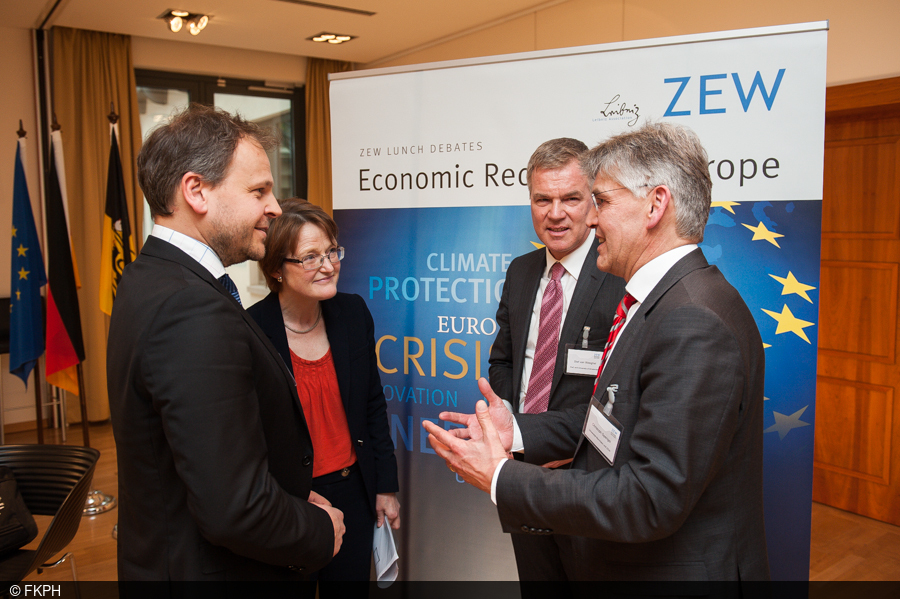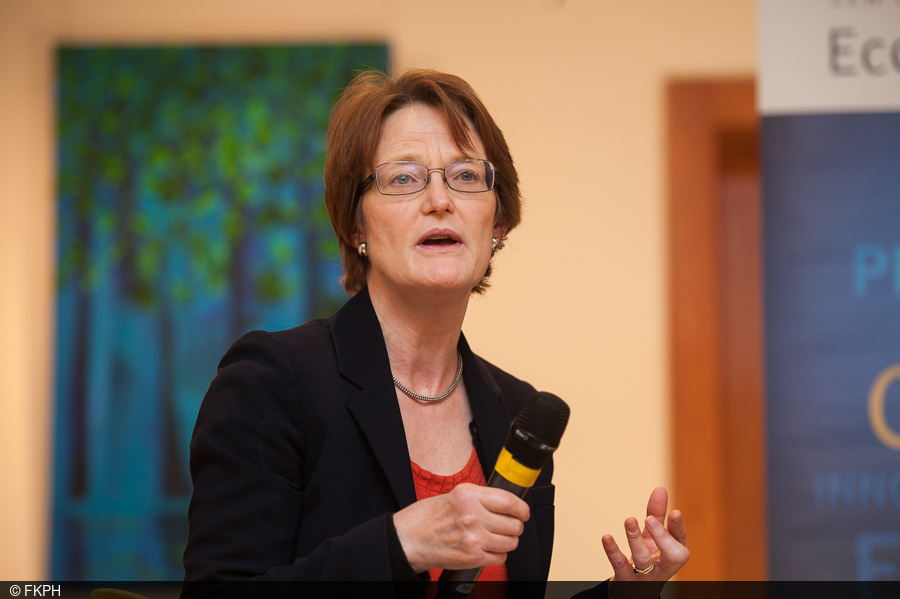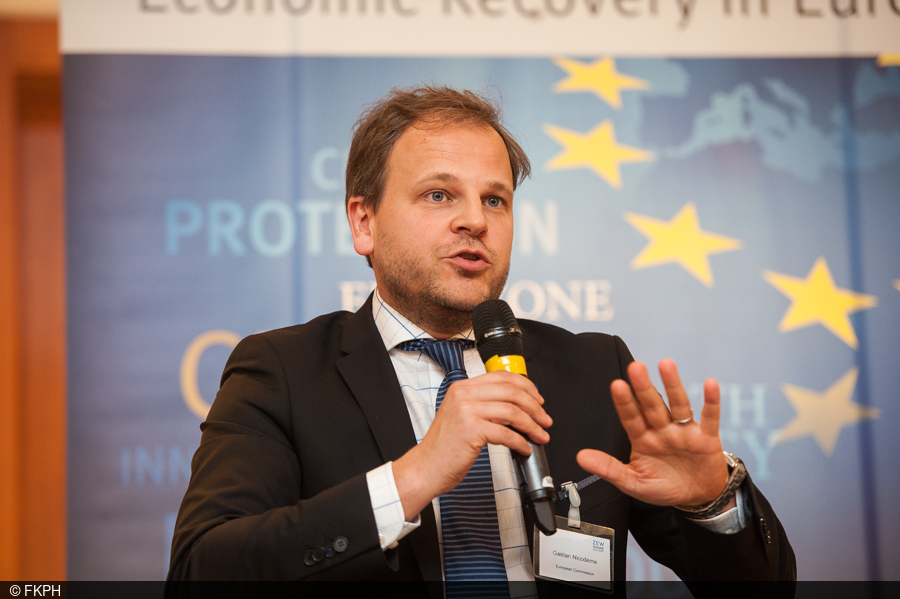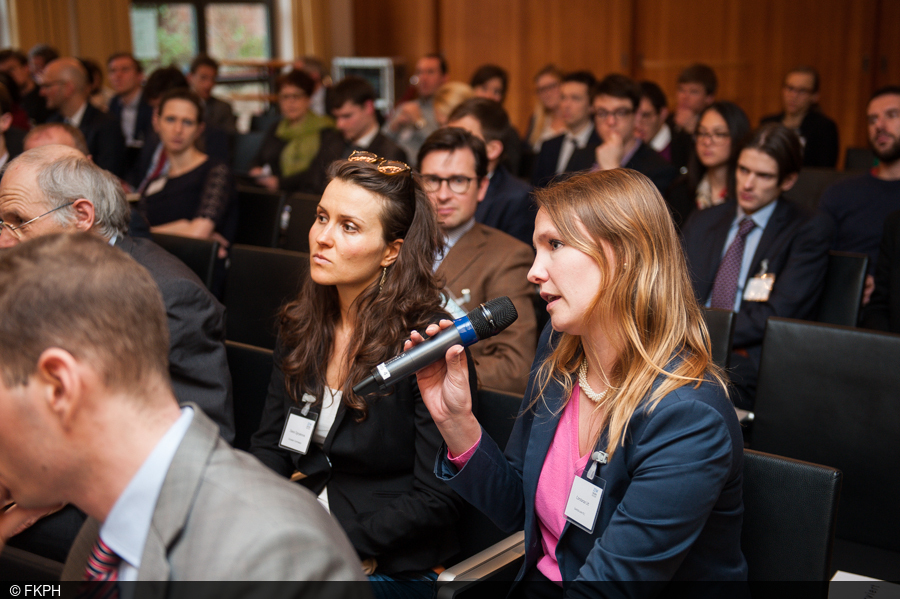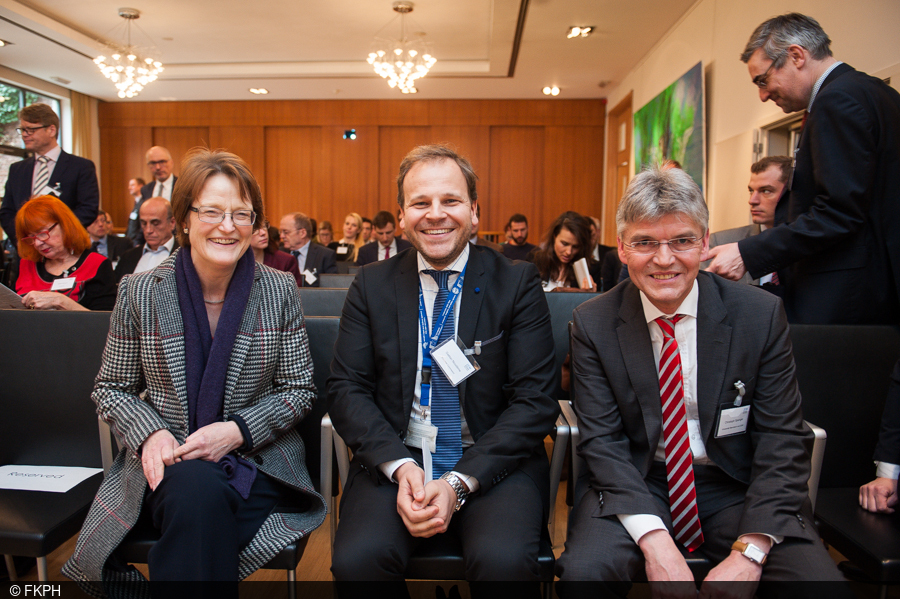ZEW Lunch Debate – Working Towards a CCCTB in Europe
ZEW Lunch Debate in BrusselsCompanies active in multiple countries within the European Union are currently confronted with 28 different sets of corporate tax legislation. This can lead to double taxation of firms and is an open invitation for aggressive tax planning. With the aim of creating more efficient tax frameworks for companies across Europe, the European Commission reissued its proposition from 2011 for a Common Consolidated Corporate Tax Base (CCCTB) in October 2016. What are the implications of the planned reforms for the EU Member States and for private companies? This question was the focus of the ZEW Lunch Debate "A New Proposal for Corporate Tax Reform: Is the CCCTB a Comprehensive Answer to Tax Challenges in our Globalised Economy?" which took place on 25 January 2017 at the Representation of the State of Baden-Württemberg to the European Union in Brussels.
"Harmonising profit assessment through a CCCTB is a useful and reasonable solution," said Professor Christoph Spengel, research associate at ZEW and professor of Business Administration and Taxation II at the University of Mannheim, in his opening speech. The tax expert welcomed the idea of a two-stage implementation of the CCCTB and made the case for facilitating the first step, namely the harmonisation of corporate tax bases. For Spengel, a compulsory CCCTB was clearly preferable to an optional CCCTB since this would reduce the cost of administration and the monitoring of the companies' adherence to the rules. Spengel added that a further advantage of the planned reforms for a common tax base was that they are generally in line with the current practices of EU Member States.
"In putting forward this proposal, the EU Commission is also attending to another problem with the current tax system in the Member States; the current system makes it cheaper for firms to finance themselves through borrowing rather than financing themselves through equity capital," said Spengel. "These new reforms will grant a tax exempt amount for the increase of equity capital, which should lead to financing neutrality and stimulate investment." Simulations have shown, however, that we can expect losses in revenue, which will put EU Member States under pressure to balance out these losses with higher tax rates, for instance. Equally, a systematic implementation of financing neutrality would have significant consequences for income taxation, something which cannot be regulated within the framework of a CCCTB.
Similarly, as Spengel pointed out, as a result of consolidation and formulistic profit distribution incentives for profit shifting would be removed. "This does not, however, apply to countries outside of the EU and thus still leaves room for aggressive tax planning with third countries."
"Creating fair, efficient and transparent taxation is a priority"
Following the opening speech, Gaëtan Nicodème, PhD, head of the Unit "Economic analysis, Evaluation and Impact assessment support" at the Directorate-General for Taxation and Customs Union of the EU Commission, went on to explain the need for a CCCTB. "Creating fair, efficient and transparent taxation across Europe is the EU Commission's top priority," said Nicodème. "Through new, additional elements in the CCCTB, we will provide strong incentives for firms to undertake measures that encourage growth, such as investing in research and development and capital equity financing." He followed on from this by proposing a number of fundamental economic goals to restimulate growth and boost employment. On top of this, tax obstacles such as double taxation are to be eliminated, while there is to be more legal certainty surrounding taxation. The CCCTB will do away with any disparities between different national systems. "We are taking steps to combat abuses of the system which should prevent companies from relocating their profits to countries outside of the EU. Multinational corporations will no longer be able to use aggressive tax planning to avoid taxation."
Political consensus is difficult to reach
Christoph Spengel and Gaëtan Nicodème were joined on the podium by Professor Stef van Weeghel, head of Global Tax Policy at the accounting and consultancy firm PricewaterhouseCoopers (PwC) and professor of International Tax Law at the University of Amsterdam. Van Weeghel emphatically endorsed the overall plan for the CCCTB. He explained that the new reforms would combat aggressive tax planning schemes and create more transparency in taxation. "We must, however, bear in mind that it is difficult to reach a political consensus. This is down to many factors, including the previously mentioned losses in revenue and also the perception that tax policy would lose its flexibility," explained van Weeghel. Nicodème countered this by pointing out that the Member States had already lost sovereignty as a result of multinational firms avoiding taxation but that this would be regained through the CCCTB.
The lively panel discussion was moderated by Vanessa Houlder, a journalist at the Financial Times. Many of the 75 guests, who included representatives of the EU Commission and European Parliament as well as participants from the fields of academia, industry and NGOs alongside members of the public, engaged actively in the debate, asking a number of questions. These included: To what extent can national concerns be dealt with at the EU level? What can multinational firms do to support the CCCTB? Does the CCCTB limit Member States' national sovereignty? These are all questions which highlight the need for a more in-depth examination of the proposed reforms as well as their potential effects and anticipated challenges.

